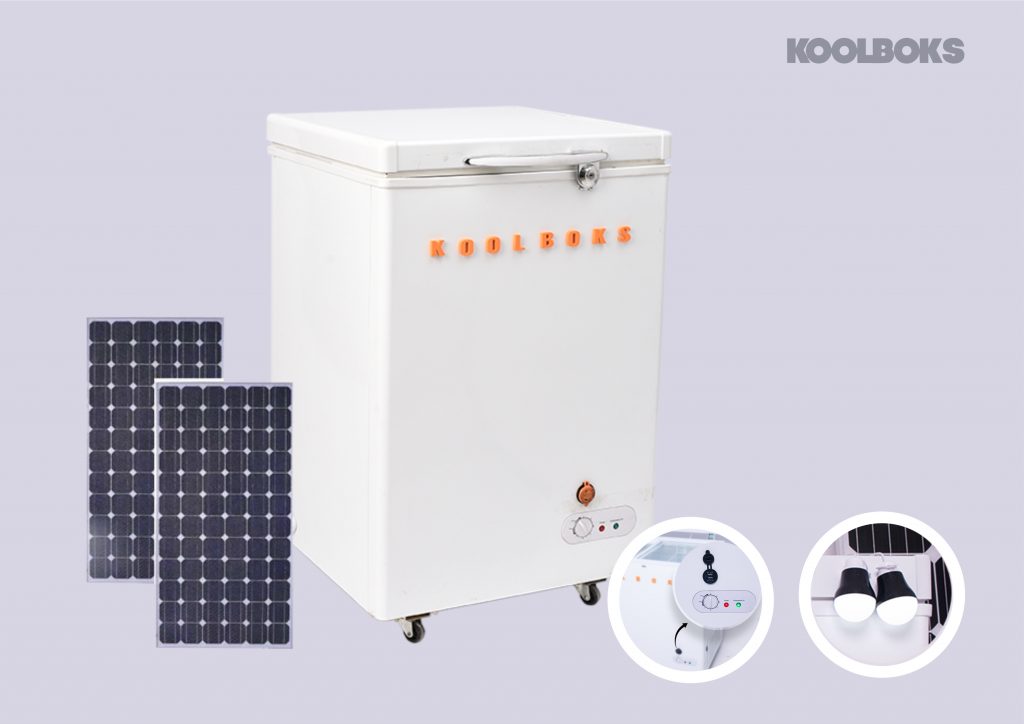
By Glory Aug, 18, 2022 Business
Over time, Nigeria's access to electricity has gotten
worse. Because of its policies, rules, and operational management, the nation
has struggled to meet demand. Its failure to deliver sufficient and reliable
energy, particularly its effects on the economy, is widely documented.
Heavy reliance on self-generated power from gasoline
and diesel generators has been observed in its commercial and industrial
sectors. Nigeria's inability to consistently supply power is a barrier to
its economy's expansion. Due to the erratic nature of the oil and gas industry,
the nation must diversify its economy.
By developing a method for producing refrigeration
without power, businesses like Koolboks are providing a viable option to
refrigeration in Africa. The sustainable cooling startup has acquired $2.5
million in seed capital.
With participation from Acumen, Blue Earth Capital,
All On, GSMA, and other investors, the round was led by the Nigerian growth
equity fund Aruwa Capital Management.
Since its founding in 2018 by Ayoola Dominic and
Deborah Gael, the company has raised a total of $3.5 million.
Initially, Koolboks' offering was simply an
outdoor refrigerator for European campers. However, the France-based
startup with an African focus focused its efforts in 2020 Koolboks aimed to
alter how cooling is perceived throughout the world. In the beginning, it had
been the European camping scene. After recording some successes, the startup
was quick to realize that its technology might have a greater impact on those
who needed it the most, according to Dominic, the startup's co-founder and CEO.
The electrical grid supply in Africa is unpredictable
and unreliable, affecting homes and businesses altogether. Irregular
electricity hinders the expansion of local businesses that sell perishables,
frozen goods, and beverages, such as restaurants and grocery stores. Some of
them use expensive and hazardous diesel generators to supply electricity.to
business owners in off-grid regions of Africa and developing markets, beginning
with Nigeria.
“These people find it difficult to feed their families
because 40% of their food gets spoilt even before getting to the market. Some
labor day and night to put their savings together to buy food stocks only for
them to throw it away the next day due to lack of refrigeration,” Dominic told
TechCrunch.
Koolboks will use the funds to establish a staff to
support its expanding B2C company and build a local assembling factory as
part of its expansion across Nigeria. Additionally, it will aid in the
business' scaling up and development into other areas. The company has
approximately 3,000 unique consumers across all geographies. Dominic states
that in the first two months of this year, Koolboks completed every transaction
that was recorded in 2021.
Dominic claims that Koolboks freezers use the solar
power to power the refrigerators for up to four days even with poor
electricity supply. A standard Koolboks unit has two LED light bulbs and USB
ports for charging smartphones, so it may be used as a refrigerator, freezer,
or charging point.
The company uses a pay-as-you-go business model
that allows individuals and businesses, like fish vendors, to buy one of its
110- to 1,000-liter off-grid solar refrigerators for $10 to $20 each month.
They pay using their mobile devices or a nearby POS agent; they receive tokens
inserted as codes into the refrigerator, which they then utilize for a set amount
of time.
Tags: Koolboks Power Supply Refrigerating Nigeria
Share On Facebook Twitter Linkedin Whatsapp Telegram
Categories
Latest Post
- Nigeria Taps Global Markets with $2.25B Eurobond Sale
- Boeing Shares Rise as CEO Confirms China Deliveries to Resume Next Month
- STOCK SPOTLIGHT: UNION HOMES REAL ESTATE INVESTMENT TRUST (UHREIT)
- Nvidia Q1 2025 Earnings Report Summary
- 📉 U.S. Market Summary – May 28, 2025
- CBN Launches New Financial Tools to Boost Nigeria’s Non-Interest Banking Sector! ✨
- Market Watch: Key Updates as Wall Street Awaits Nvidia and Salesforce Earnings
- U.S. Equity Markets Rally as EU Tariff Deadline Is Extended and Consumer Confidence Surges
- Things to Know Before the U.S. Stock Market Opens
- What to Expect in the Markets This Week (May 27–31)

Start investing with Acorns today! Get $5 when you use my invite link: Z24WWE
